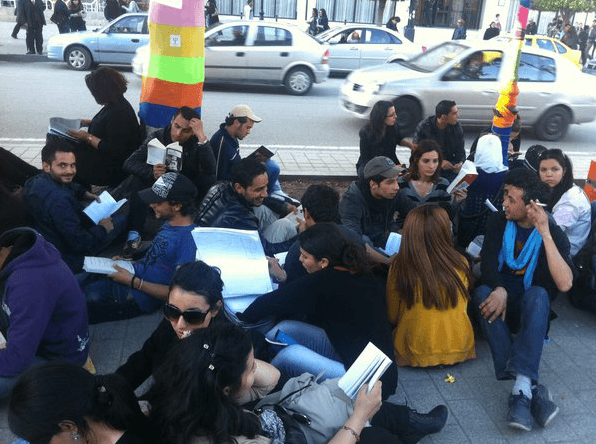Tunisian protesters bring something unusual to demonstration: books
Demonstrators read books on Tunis’s Habib Bourguiba Avenue, in protest of actions by the new government there. It’s in many ways a continuation of last year’s Arab Spring protests. (Photo by Ahmed Medien.)
The revolutions that are now collectively known as the Arab Spring began in Tunisia.
It was the first country where unprecedented street protests led to the fall of a longtime ruler. President Zine El Abidine Ben Ali was toppled in January 2011.
See a photogallery of the protests at TheWorld.org.
The protests continued as Tunisia searched for a new way forward.
Ironically, the new leaders recently banned protests on one of the Tunisian capital’s most symbolic streets.
Merchants along Habib Bourguiba Avenue in Tunis had complained about too much business being lost because of all the demonstrations. Habib Bourguiba Avenue is a major street in Tunis and has long been a central location for protests. The Arab Spring protests were no different.
More protests followed the ban — some of which turned violent.
The ban was eventually lifted.
And Wednesday, a new demonstration of sorts was held on Habib Bourguiba Avenue.
People literally sat on the street reading books.
Ahmed Medien, a contributor to Global Voices, said the participants came from “all walks of life and different political ideologies.”
He said the books were abundant and in different genres and languages.
